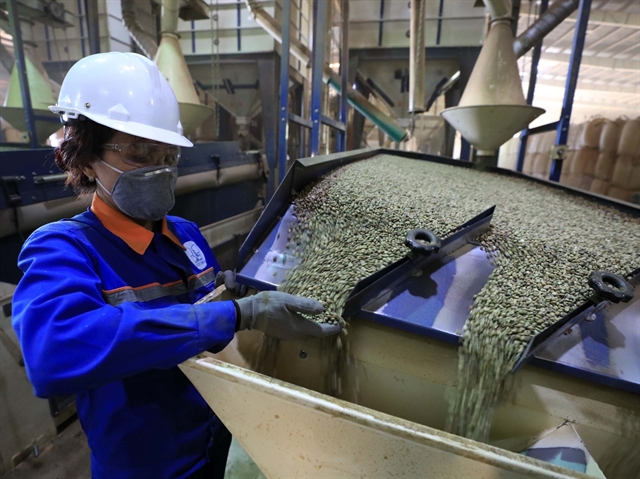 Life & Style
Life & Style

Kilns in Địa Linh Village, in the central Thừa Thiên-Huế Province are burning these days so that the last batches of Vietnamese kitchen god statues can be baked before the end of the year.
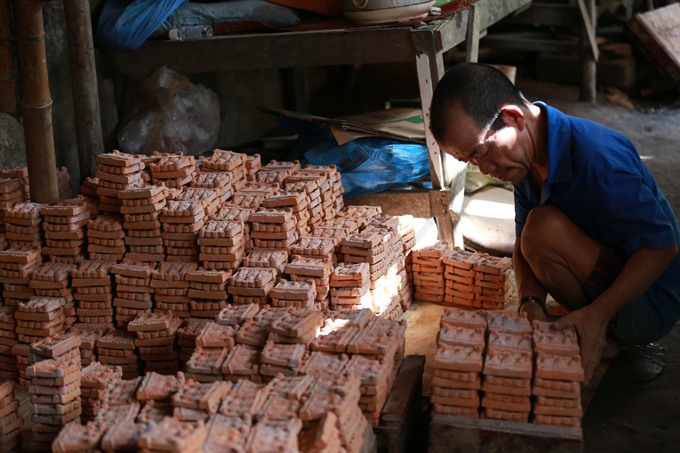 |
| Stacks of statues: Kitchen God statues are piled up before being taken to the market. |
by Phước Bửu and Nguyễn Văn Sum
Kilns in Địa Linh Village, in the central Thừa Thiên-Huế Province are burning these days so that the last batches of Vietnamese kitchen god statues can be baked before the end of the year.
According to tradition, Vietnamese people will prepare offerings to the gods as they make their trip to heaven on the 23rd day of the lunar month of December. This is the time when people replace their old kitchen god statue with a new one.
The statues are made in the shape of a woman and two men. According to legend, the lady accidentally met her ex-husband and rushed to hide the man in a bundle of hay before her husband returned home from farming work. When her husband returned, he lit the fire to cook rice and the bundle of hay nearby caught fire. The lady jumped into the fire to save the ex-husband, and then her current husband did the same to rescue her, resulting in all three perishing in the fire. The God of Heaven was moved by their death and turned them into kitchen gods.
The statues are made of clay, which is taken from paddy fields in some villages. The clay is first packed into a wooden mold to be shaped, and then the wet earthen statues are dried under the sun. They are then baked in kilns before being painted to make the final products.
Some buyers prefer painted statues while others want unpainted ones.
Almost every home, regardless of size or financial condition, has an altar worshipping the kitchen god in its kitchen. The requirement of kitchen god statues has remained steady year after year as the tradition continues to be followed on the 23rd day of lunar December.
However, the craft has declined in popularity in the village over recent years, as villagers switch to other jobs with better earning potential. Only three families in the village continue the craft of making kitchen god statues. — VNS
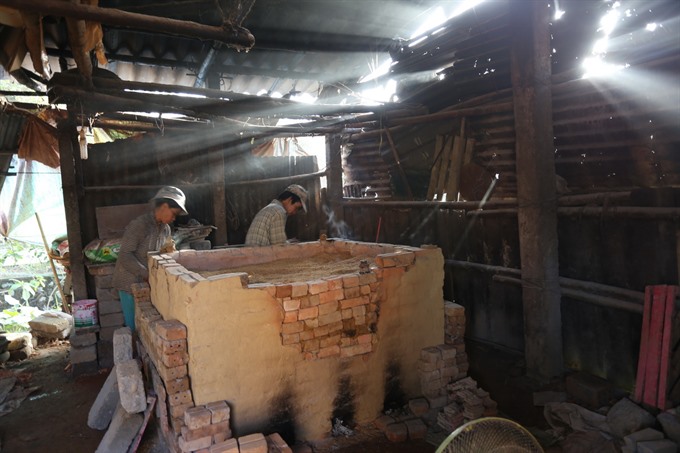 |
| Heating up: Kilns are prepared to bake the clay statues. |
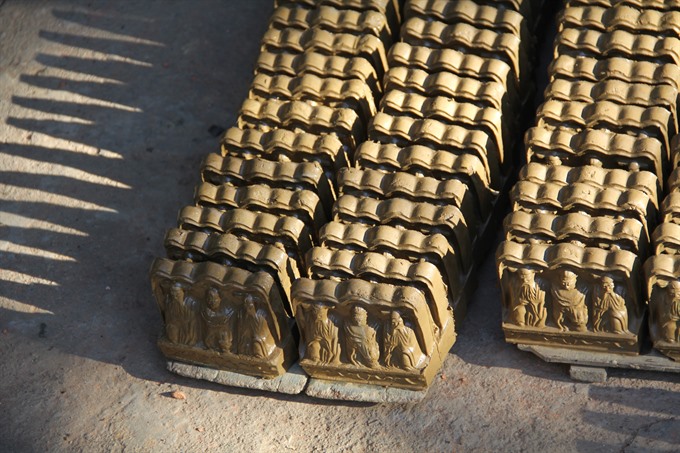 |
| Tet tradition: Kitchen god statues are dried under the sun. |
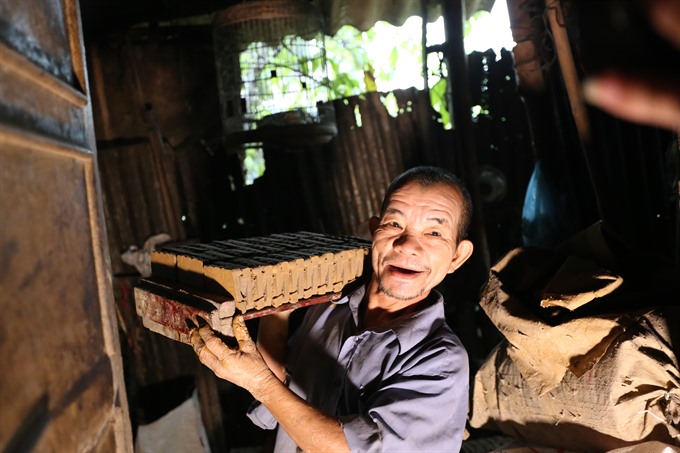 |
| Heavy work: A villager carries wet earthen statues to dry. |
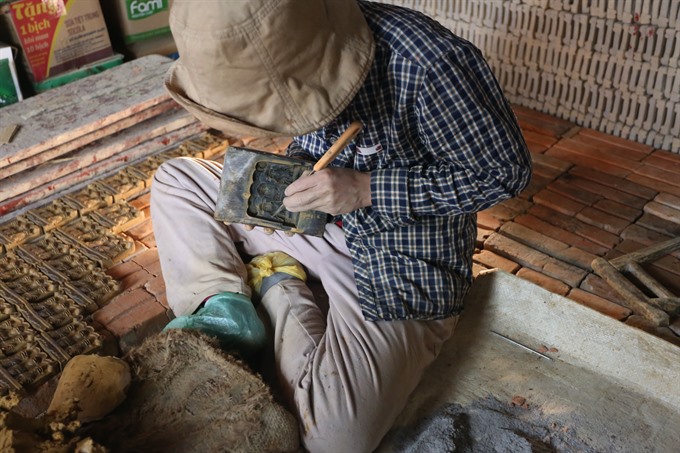 |
| Attention to detail: The mold is cleaned after each batch to keep patterns on the statues sharp. |
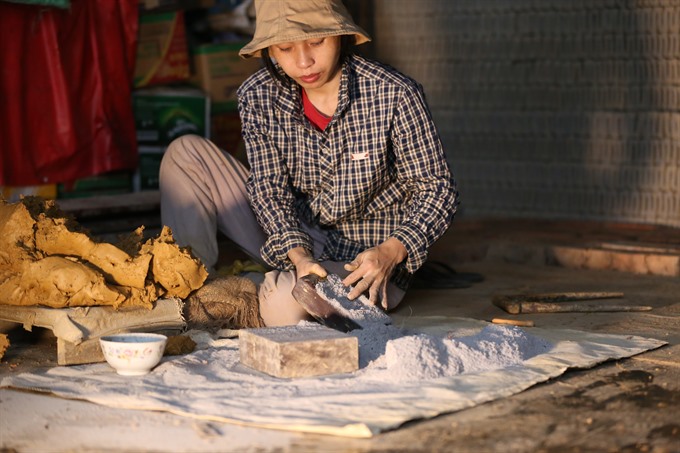 |
| Ready for moulding: A woman prepares clay that will be pressed into wooden plates |

.jpg)

